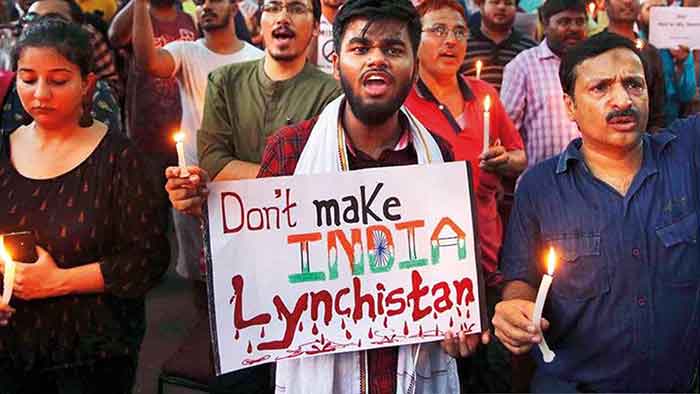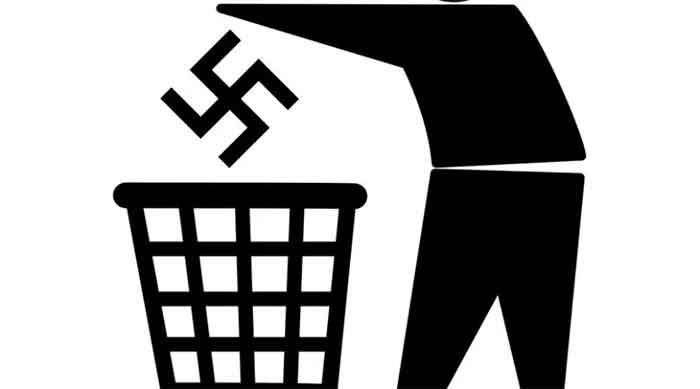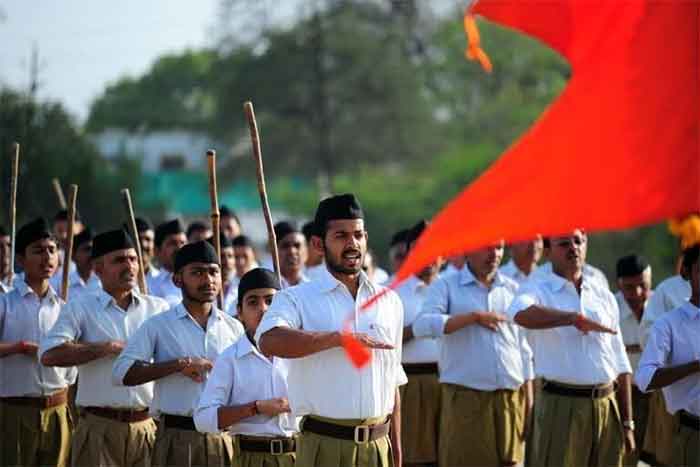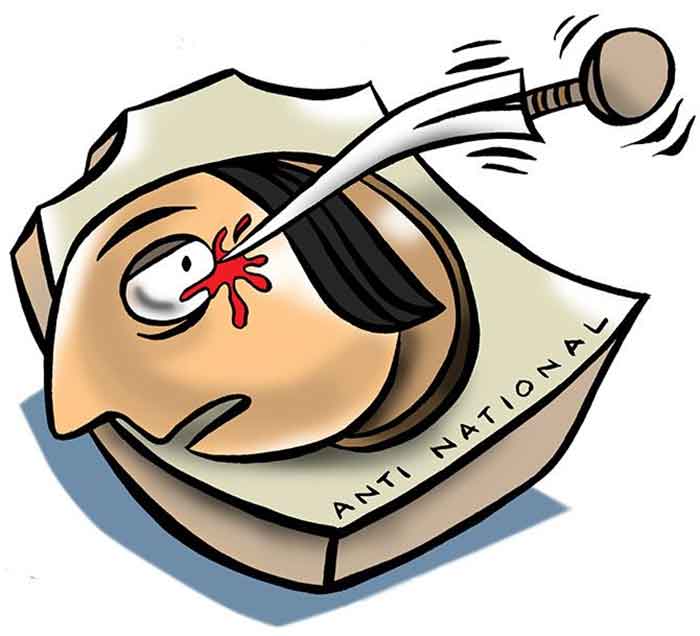Groups extend offer to Biden to provide input to help make the summit a success

WASHINGTON, DC (Dec. 7, 2021) – A consortium of 34 international multi-faith human rights NGOs have written a letter to President Joe Biden and Vice President Kamala Harris expressing their deep concern that the president’s Summit for Democracy Dec. 9-10 will ignore the widespread violations of human rights, persecution, physical attacks and murder of members of minority religions in India as the government devolves from democracy to fascism.
The letter, at more than 1,500 words, provides details and indisputable facts for 14 instances in which democracy is under attack or being abused by the government of Indian Prime Minister Narendra Modi and members of his BJP/RSS party.
The letter also expresses regret that more members of the international civil society were not included in planning for the summit, and those who were involved were warned that specific instances of member nations’ internal affairs, abuses, discrimination and persecution will be off limits.
“While your organizing principles are commendable, the process has been weak and exclusionary,” the letter states. “… We are committed to working with your administration to strengthen the Democracy Summit process. We therefore seek urgent consultation with your administration, not only to ensure that the Democracy Summit gets off to a meaningful start, but also that the process going forward gains in strength at every stage.”
HERE IS ITS FULL TEXT
Dear President Biden and Vice President Harris,
We, the undersigned organizations, are writing to express deep concern about the minimal public consultation with civil society in the run up to the Democracy Summit. We write also to outline some critical considerations that will help the Summit process attain your goals of returning the US to a “position of trusted leadership among world democracies,” particularly with countries with whom the US shares “interests and values.”
Unfortunately, the present Indian government cannot be considered one that shares the democratic values of your administration. While our two countries could never have claimed to be perfect democracies, it is important that the Summit start from acknowledging one key fact: the past seven years of BJP/RSS rule in India have seen a sharp and dramatic backsliding when it comes to democratic norms.
Take the case of the Farm Laws: after passing sweeping laws as an ordinance without any consultation with farmers or the opposition, the government brutally repressed and demonized the farmers’ movement against the laws. Even the repeal of the three laws occurred in a manner suited to strongmen: instead of communicating with farmers, or following parliamentary process, Mr. Modi unilaterally announced the repeal. Not a word was said by Mr.
Modi about the 700+ deaths that his government’s intransigence and authoritarian approach in the matter had produced.
We appreciate the three organizing principles around which the summit is organized, but urge you to attend to our critical concerns regarding India under each of these pillars:
1. Defending against Authoritarianism: Freedom House has downgraded India’s democracy to “partly free.” International commentators from every major media publication have consistently raised the issue of India’s authoritarian turn over the last seven years. Three specific issues must be raised with Mr. Modi:
- Anti-Minority Laws: The Modi government began its second term with the passage of the Citizenship Amendment Act. Together with its corollary processes of the National Register of Citizens and the National Population Register, the CAA/NRC/NPR create a framework for the active disenfranchisement of India’s largest minority—Muslims—stripping away their voting and citizenship rights. Not challenging these would be the equivalent of abetting conditions for a future genocide. All this is playing out in the context of a series of other laws targeting religious minorities, including anti-conversion and anti-inter religious marriage laws, which also target Christians. In addition, Christian institutions are under attack, with International Christian Concern counting India among the seven worst persecutors of Christians in the world.
- Kashmir: The sudden revocation of Article 370 of the Indian Constitution, and the overwhelming use of the military in Kashmir, with there being one soldier for every seven Kashmiris at one stage, is already being acknowledged internationally as the single most visible and unambiguous sign of BJP/RSS authoritarianism and its willingness to run roughshod over constitutional protections and guarantees.
- Dissent, Political Prisoners, and Draconian Laws: The last 7 years has seen a continuous and rising tide of arrest and imprisonment of dissenters under draconian anti-terror laws such as UAPA and the NSA in India. The Bhima Koregaon 16 case, the arrests of students, activists, and journalists in the wake of the Northeast Delhi violence, and most recently the arrests of journalists reporting on religious violence in Tripura, are just the most known instances. Those jailed without trial include some of India’s most prominent public intellectuals, poets, writers, journalists, lawyers, and leaders of the women’s movement. At least one prominent arrestee, Jesuit priest Father Stan Swamy, passed away while still in custody due to the effects of being incarcerated during a global pandemic in his 80s. If dissent is the most important aspect of an active democracy, then PM Modi has a unique record in its repression. This includes significant evidence that in the landmark BK-16 case, evidence was falsely planted on defendants’ computers through malware, opening up a new vector of attack on critics of the government.
2. Addressing and Fighting Corruption: While the Modi government first came to office on an anti-corruption plank, it has since proven to be one of the most opaque and nontransparent governments India has known. Three issues of international scale and core to American interests and values must be raised with PM Modi at the summit:
- Electoral Bonds: The Modi government introduced electoral bonds in 2015, sneaking them in as part of the budget process. This set into place the most opaque electoral finance system in the democratic world. It allows for national and international corporations to pay into party funds with no oversight and no transparency. From summary figures available, it is clear that large numbers of international shell companies are involved in financing Indian political parties, and that the BJP is by far the single largest recipient of such funds. While US funders of electoral bonds in India must be revealed, this assault on the financial underpinnings of India’s democracy must stop.
- Rafale and Crony Capitalism: India’s position as a valued member of the Quad is premised on transparent and incorruptible trade, particularly in the arms sector. The Rafale deal with France is a subject of an ongoing French investigation. What has already been revealed about the deal, including data submitted to the Comptroller and Auditor General in India, points to a specific corporation being favored, and millions of dollars of graft money being at play. Democracy cannot survive in an atmosphere of crony capitalism.
- PMCARES Fund: The PMCARES fund is at the center of the financial scandal that emerged even as India faced two devastating waves of the pandemic. Under Indian law and as per the government’s own promotional material while raising money for PMCARES, this fund meets the definition of a government fund. And yet, today, the government of India claims the fund is not a government fund, and refuses to release any details about it, even though several government agencies, including the Indian consulate in Washington, DC, and in 26 other countries, advertised PMCARES and helped raise funds for it!
3. Advancing Respect for Human Rights: This government is marked by explicit attacks on human rights coming from its top leadership. PM Modi has demonized non-governmental organizations by claiming they are working to “finish him”; Amit Shah has dismissed human rights as Western concepts that don’t apply to India; National Security Advisor Ajit Doval has branded civil society as the “new frontier of war”; and Bipin Rawat, the chief of defense staff, has valorized lynching. Such naked attacks on human rights from the very top echelons of the administration needs to be a central concern of the summit.
- Digital surveillance and planting of evidence: Two recent revelations on surveillance and evidence planting, potentially by the Indian state, suggest a severe rise in the misuse of spying technologies to attack critics of the government. Pegasus was used to snoop on journalists, top opposition leaders, and even independent election commissioners; the malware Netwire went one step further and planted evidence on the computers of dissenters. While several democratic governments have opened investigations in the wake of these revelations, the Indian government has refused to do so thus far. Given your recent sanctions against the NSO Group, the US must call on Mr.Modi to immediately stop the use of malware to target civil society, investigate these harms, and punish offenders.
- Worsening caste oppression and erosion of legislative protections: Caste remains the most pervasive form of violation of basic human rights in India, and the last several years have seen an alarming increase in caste atrocities. Particularly in the northern state of Uttar Pradesh, the BJP-led state government and police have themselves been complicit in covering up sexual violence against Dalits. Groups connected to the RSS have led to violence against Dalits on university campuses and in the state of Gujarat. Moreover, the Modi government failed to protect provisions in the SC/ST (Prevention of Atrocities) Act, which acts as a crucial deterrent, until protests and the opposition forced it to do so. The BK-16 case is another example of the BJP/RSS’s punitive retaliation against Dalit assertion and their exercising of civil and cultural rights by commemorating Dalit valor in the historic Bhima-Koregaon battle.
- Labor Codes: In September 2020, the Narendra Modi government passed new laws governing Labor when the opposition was absent from Parliament. These laws make it harder for labor unions to be recognized; harder for workers to go on strike; and made it easier for some companies to lay off workers with impunity. The assault on labor rights is a critical part of the Modi government’s overall assault on human rights.
The Swedish V-Dem Institute has described India as an “electoral autocracy,” and we agree: this is the single most antidemocratic government India has ever seen. Therefore, we are committed to working with your administration to strengthen the Democracy Summit process.
While your organizing principles are commendable, the process has been weak and exclusionary. We therefore seek urgent consultation with your administration, not only to ensure that the Democracy Summit gets off to a meaningful start, but also that the process going forward gains in strength at every stage.
Sincerely,
1. Alliance of South Asians Taking Action, USA
2. Alternatives International, Canada
3. Ambedkar International Center, USA
4. Ambedkar King Study Circle, USA
5. Anti-Caste Discrimination Alliance, UK
6. Association of Indian Muslims of America, USA
7. Aotearoa Alliance Of Progressive Indians (Aotearoa New Zealand.)
8. Center for Pluralism, USA
9. CERAS (Centre sur l’asie du sud), Montreal, Canada
10. Chicago Coalition for Human Rights in India (CCHRI), USA
11. Coalition Against Fascism in India (CAFI), USA
12. Coalition of Seattle Indian Americans, USA
13. Dalit Solidarity Forum, USA
14. Federation of Indian American Christian Organizations (FIACONA), North America
15. Foundation: The London Story, EU
16. Friends of India—Texas, USA
17. Hindus for Human Rights, USA
18. India Civil Watch International, North America
19. India Justice Project, Germany
20. Indian American Muslim Council (IAMC), USA
21. India Solidarity Germany, Germany
22. International Christian Concern, USA
23. International Commission for Dalit Rights, USA
24. International Solidarity for Academic Freedom in India, International
25. International Society for Peace and Justice, USA
26. Punjabi Literary and Cultural Association (PLCA) Winnipeg, Canada
27. Scottish Indians for Justice, Scotland
28. South Asian Dalit Adivasi Network, Canada
29. South Asian Left Activist Movement (SALAM), USA
30. South Asia Solidarity Group, UK
31. Students Against Hindutva Ideology, USA
32. The Humanism Project, Australia
33. Turbine Bagh, UK
34. Voices Against Fascism in India, USA
35. Islamic Society of North America (ISNA), USA
















































